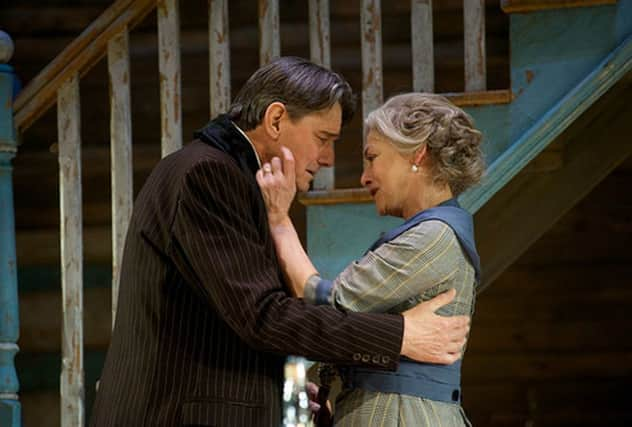Theatre review: A Long Day’s Journey Into Night, Edinburgh


A Long Day’s Journey Into Night - Royal Lyceum, Edinburgh
* * * *
Eugene O’Neill’s 1941 masterpiece Long Day’s Journey Into Night is perhaps the greatest play ever written about the catastrophic failure of an American family; and if it remains in some ways a raw and relentlessly downbeat piece of autobiography, it also has a huge, shapely tragic momentum about it, an underlying beauty perfectly captured in this intense and thoughtful Lyceum production, directed with great concentration and finesse by Tony Cownie.
The tale of the Tyrone family is a grim one, of course; of the famous, hard-drinking actor father who still carries the ugly scars of his impoverished childhood, the two sons beset by illness and alcoholism, and – crucially – the mother who has failed in the traditional female role of holding things together, and instead dulls the pain of her broken dreams with a ruinous morphine addiction. Paul Shelley and Diana Kent turn in memorable, gripping performances as James and Mary Tyrone; Adam Best, last seen at the Lyceum in Crime And Punishment, is outstanding as their boozed-up elder son. And although Long Day’s Journey is not an easy play to watch – and the shock of its exposure of the family’s lies and silences has inevitably faded slightly with the years – this is still a play that leaves its audiences enriched; if only by the sheer depth and truthfulness of its human understanding, and its sorrow.